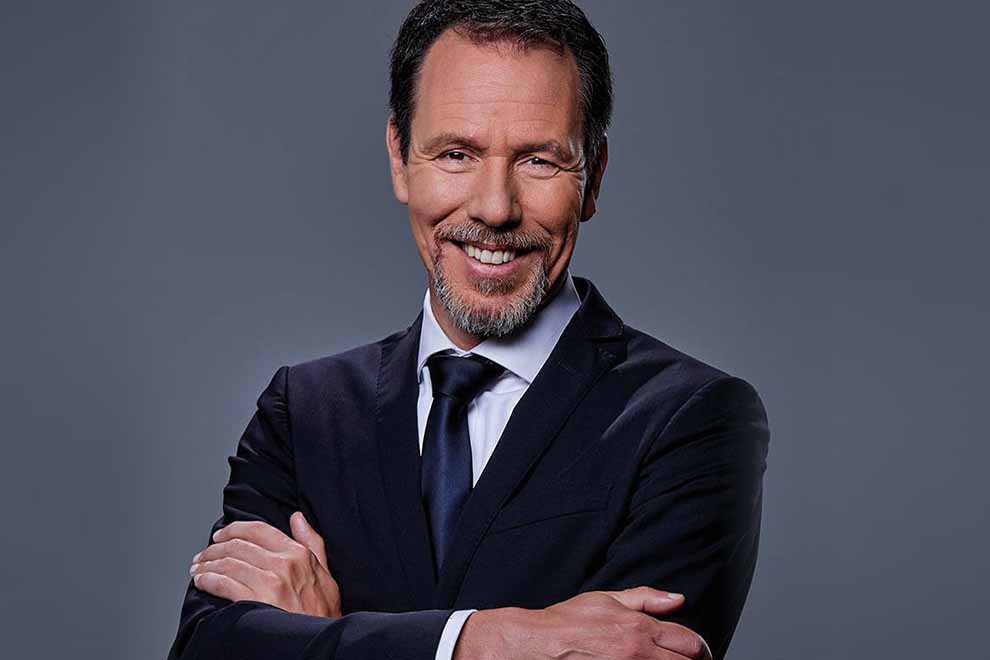AI, chatbots and LLMs are going to profoundly change healthcare. Who still dares to doubt this claim? That technology is intervening deeply, even Careyn board chairman Mark Van Houdenhoven sees. But he wonders aloud whether we are heading in the right direction. "We are running after hypes, while we don't even know how it works." However, it is becoming increasingly clear that new technology now mainly supports a monopolistic revenue model in which private interests count more heavily than social goals.
These are vast vistas that proponents of AI present to healthcare. Van Houdenhoven, too, is now familiar with the promises of AI. "Then I will need fewer doctors, nurses and caregivers. All problems are solved by ChatGPT, while we don't even understand the outcomes. When a new drug is developed, we have to test it for years. Now doctors just have to start diagnosing with ChatGPT because there are a few articles showing that it works well."
Gains from progress
Administrator, professor and columnist Van Houdenhoven has a reputation to uphold as a critical observer of digital developments in healthcare. Earlier, he repeatedly criticized the fact that, in his view, hospitals are on the leash of the suppliers of digital technology.
But those who think a techno-hater speaks here are wrong. "On the contrary, I am known as someone who embraces technology," Van Houdenhoven responds. "I love innovation. But the question is how we deploy it. New technology definitely brings progress, but the question is how that progress is distributed in society. Who pockets the profits of progress? And I'm not just talking about profits in euros, but also the impact on society. Will new jobs be created or will they disappear? Do people become happier as a result? Does it improve democracy?"
Misinformation
For now, according to Van Houdenhoven, there is cause for concern on all these points. For example, he sees accidents happening on a regular basis, with the damage being borne by the collective. "Artificial intelligence is fueled by data. Without that data, AI is nothing. So what you put in, you get out. If a company drags misinformation off the Internet and builds AI models on it, you get even more misinformation, only it's sold as intelligence. We have seen what this can cause in society. Facebook and TikTok, through their algorithms, get users hooked. The Internet is full of racism and misinformation. And we get to solve the consequences of misinformation, such as addiction, when we don't even know what's in the algorithm."
Manipulation AI model
The often inscrutable workings of AI models can also facilitate deliberate manipulation, according to Van Houdenhoven. "If we don't know how the model behind ChatGPT works and what data it eats, it could be that companies are influencing algorithms behind the scenes."
Choice aids and decision-support models can thus turn into a sales trap. "It could be that, behind the scenes, a pharmaceutical influences the algorithm in such a way that, for a given diagnosis, the doctor always ends up with the drug from that particular pharmaceutical. But we can't know that, because the model is secret."
Selling insurance
As for Big Tech's intentions, Van Houdenhoven says we need have no illusions. "Those companies are not out to make humanity better or to improve healthcare. They just want to make as much money as possible, and you can see that in all their actions. Amazon now has an all you can eat subscription of fifty drugs for five dollars a month. Is that progress? How about if soon Apple, Amazon, Google or Microsoft start selling health insurance with all the data they have? Health care is their big dream, because that's where the money is."
Shifting focus
This hunger for new markets and profit maximization is obviously at odds with the social objectives of a sector like healthcare. Yet according to Van Houdenhoven, it is wrong to then just keep doors and windows closed. "We should not stop technology. You have people who want to stop data collection and AI. That seems impossible to me. The question is: how do we shift the focus so that it improves society? That conversation has to take place in society. Now that data becomes the property of big monopolies. The question is how to turn that data into profit for society instead of profit for companies that monopolize the data."
More fun work?
The social conversation envisioned by Van Houdenhoven is a tricky one for more than one reason, especially for a sector like healthcare where there is still considerable skepticism about the application of digital technology. "Digital technology has brought us a lot in recent years, but you won't find many healthcare workers who think their work has become more enjoyable," Van Houdenhoven acknowledges. "They have to do a lot of administration, computers do not support enough, programs do not work yet ... That is not a reproach, but a simple observation."
Power relations
A possible lack of enthusiasm to act as a discussion partner is perhaps the least of the obstacles to a social dialogue on digitization. The real game-changer, of course, is the unequal balance of power among the participants. "It's about the most powerful companies in the world. They are often more powerful than countries," Van Houdenhoven summarizes the issue.
Vertical integration AI stack
And that dominance only seems to be getting stronger. Vertical integration of the AI chain, also referred to as the "AI stack," puts chip manufacturing, cloud computing, AI development and application distribution increasingly in the hands of a few parties. Chip manufacturer Nvidia, for example, also Microsoft's AI partner, controls roughly 85 percent of the global market. And Amazon, Google and Microsoft together account for two-thirds of global cloud capacity.
Regulation
"Throughout history, you see that monopolization also leads to political power," Van Houdenhoven observes. "You used to have railroads and oil companies. Today it's about the monopolization of data, which makes the companies involved more powerful than ever. What they do has enormous impact on society. And we have no control over it. It is time to adjust this, but that is difficult, because who is at the table when it comes to the future of AI? That's the companies that make AI. And you don't think they impose voluntary regulation on themselves, do you?"
Techno-optimism
A social debate about digitization also has subtle challenges. Gradually, the values and norms from the tech world have nestled themselves into our collective consciousness. This is evident in our relentless fascination with tech entrepreneurs like Elon Musk. "Everyone thinks he's a hero. That's the techno-optimism that prevails now."
Brain chip
That Musk is "doing an insane amount" is something Van Houdenhoven also sees: "But let's also look at how and for what purpose he wants to use technology." To support his point, Van Houdenhoven points to the recent success of Neuralink. This Musk spin-off recently managed to implant a brain chip that enabled a paralyzed patient to operate a computer mouse. Swiss neuroscientist Gregoire Courtine managed to accomplish something similar last year at the Sint Maartens Clinic, where Van Houdenhoven was chairman of the board.
Trade secret
"About Courtine's operation, there are all scientific publications," Van Houdenhoven states. "At Elon Musk's club, there are none, because they call that trade secret. To discuss and direct that is very important. The technology may be top notch, but what is the corporate vision? What are the goals of such a company? What do we as a society think about that? That's never what the conversation is about."
Rise
Still, as far as Van Houdenhoven is concerned, there is only one way out of the current stalemate. "Only together can we adjust. Consumers must stand up, politicians must stand up, doctors must stand up, I must stand up ... It must no longer be about making money, but about the vision behind the use of technology and what society we envision in doing so."












